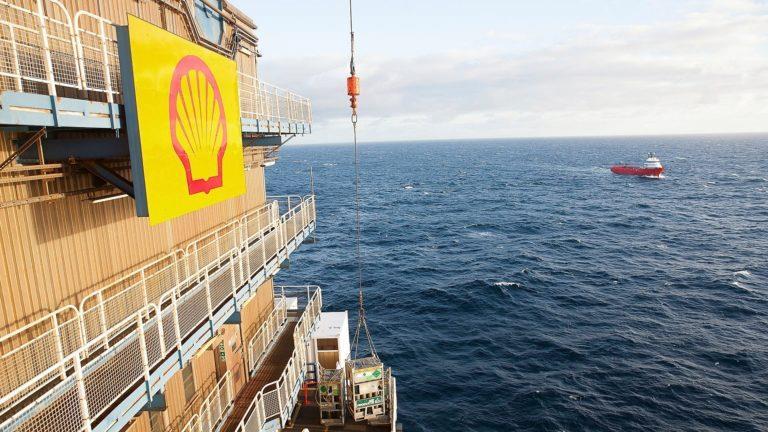
Supermajor Shell (LON: SHEL) has been backed to replicate the eye-watering profits it reported earlier this year.
The London-listed energy giant will publish its second quarter financial results tomorrow against the ongoing backdrop of high oil and gas prices.
Analysts are predicting “another monster set of cash flow figures” from Shell, with Big Oil across the board poised for record profits in Q2, driven by high energy prices.
In May, Shell reported record quarterly results, with takings of £8.6 billion and revenue of around £67bn.
That is despite suffering a £3.1bn hit over its exit from Russia, following the country’s invasion of Ukraine.
Shell’s gigantic Q1 profits, as well as those of its counterparts, fuelled calls for a windfall tax on oil and gas producers.
Just over a couple of weeks later – and in the wake of the publication of the Sue Gray report – the then-Chancellor, Rishi Sunak announced the energy profits levy.
Shell results
There are likely to be calls for government to go further again, with the likes of Shell, BP (LON: BP) and TotalEnergies (LON: TTE) expected to announced whopping profits in the coming days.
Norwegian energy giant Equinor (OSLO: EQNR) has already set the pace, unveiling first-half adjusted earnings of $35.5bn on Wednesday.
According to Vara Research, picked by Shell to compile analysts estimates, the Anglo-Dutch firm is on for second quarter cash flow from operating activities, excluding liabilities, of around £16bn.
Cash from integrated gas and upstream activities for Q2 is expected to be £3.2bn and £3.6bn respectively.
Biraj Borkhataria, associate director of European research at Royal Bank of Canada, said: “Shell’s trading update looked constructive to us, and we expect Shell to report another monster set of cash flow figures, following some extremely tough comps in Q1.
“Our $17.4bn cash flow from operations (CFFO) estimate includes -$2bn of margining impacts, and an underlying result closer to $19-20bn is expected by the market, we think. “
Why are oil companies takings so high?
At the turn of the year, oil and gas markets were already beginning to tighten.
A myriad of factors including countries emerging from lockdown, a cold snap in Asia, and record low wind speeds combined to send the gas price through the roof in 2021.
Brent crude was also in a far healthier state than the previous year, when lockdowns and the subsequent industry downturn caused the price to plummet.
Putin’s attack on Ukraine, and the economic sanctions from western governments that followed, simply served to exacerbate the problem.
In February, oil crashed through the $100 a barrel mark for the first time since 2014, and has remained around that point or higher since.
John Moore, senior investment manager at Brewin Dolphin, said: “Shell, along with the other oil majors, is expected to post an impressive set of results this quarter. The rising oil price in the first half of the year has been the obvious influence, intensified by the sanctions on Russia following its invasion of Ukraine.
“It hasn’t all been plain sailing, though: oil majors had to sell off their interests in Russia, the previous set of results attracted political attention, and there have been issues with the supply of liquified natural gas. Nevertheless, Shell has managed to shrug off many of these challenges and is likely to deliver some positive news for shareholders.”
Windfall tax
As sure as night follows day, the rise in energy prices set the inflation ball rolling and led to a sharp increase in domestic bills.
What has resulted is a squeeze on household budgets and a cost-of-living crisis billed by some as the worst since the 1950s.
In an effort to ease some of the pressure, Westminster announced the energy profits levy, more commonly known as the windfall tax.
Unveiled just hours after the damning Sue Gray report into Covid-19 lockdown-breaking parties at Downing Street, the bill raised the headline rate of tax on oil firms by 25%.
It means government will get a bigger cut of Shell’s bumper profits.
The levy is expected to raise about £5bn a year that will go towards helping hard up households.
Government also opted to almost double the investment allowance to incentivise companies to spend on new projects.
Despite the sweetener, the oil and gas industry has, on the whole, criticised the windfall tax amid fears it could drive companies elsewhere.
It will run until the oil price reaches “historically more normal levels”, believed to be around$70 a barrel, or December 2025, whichever comes first.
Recommended for you


 © Bloomberg
© Bloomberg © EyePress News/Shutterstock
© EyePress News/Shutterstock © WIktor Szymanowicz/NurPhoto/Shut
© WIktor Szymanowicz/NurPhoto/Shut